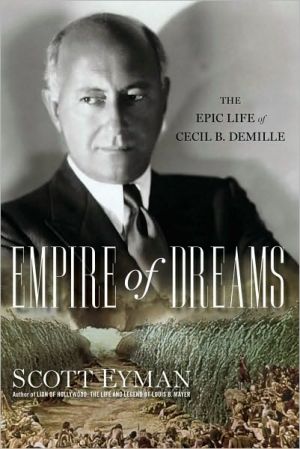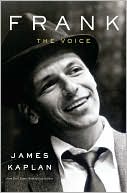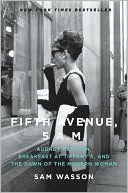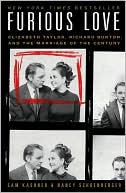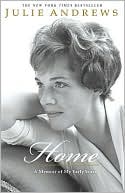Empire of Dreams: The Epic Life of Cecil B. DeMille
The authoritative biography of the legendary director Cecil B. DeMille: “if this were a movie, it would get four stars, two thumbs up, and an A” ( The Dallas Morning News ).\ • Hollywood history: Cecil B. DeMille was among the earliest filmmakers who discovered some of the biggest stars in film, including Gloria Swanson, Claudette Colbert, and later, Charlton Heston. DeMille’s greatest successes came with biblical spectacles, notably The Ten Commandments and King of Kings . When he finally...
Search in google:
BEST KNOWN AS THE DIRECTOR of such spectacular films as The Ten Commandments and King of Kings, Cecil B. DeMille lived a life as epic as any of his cinematic masterpieces. As a child DeMille learned the Bible from his father, a theology student and playwright who introduced Cecil and his older brother, William, to the theater. Tutored by impresario David Belasco, DeMille discovered how audiences responded to showmanship: sets, lights, costumes, etc. He took this knowledge with him to Los Angeles in 1913, where he became one of the movie pioneers, in partnership with Jesse Lasky and Lasky’s brother-in-law Samuel Goldfish (later Goldwyn). Working out of a barn on streets fragrant with orange blossom and pepper trees, the Lasky company turned out a string of successful silents, most of them directed by DeMille, who became one of the biggest names of the silent era. With films such as The Squaw Man, Brewster’s Millions, Joan the Woman, and Don’t Change Your Husband, he was the creative backbone of what would become Paramount Studios. In 1923 he filmed his first version of The Ten Commandments and later a second biblical epic, King of Kings, both enormous box-office successes. Although his reputation rests largely on the biblical epics he made, DeMille’s personal life was no morality tale. He remained married to his wife, Constance, for more than fifty years, but for most of the marriage he had three mistresses simultaneously, all of whom worked for him. He showed great loyalty to a small group of actors who knew his style, but he also discovered some major stars, among them Gloria Swanson, Claudette Colbert, and later, Charlton Heston. DeMille was one of the few silent-era directors who made a completely successful transition to sound. In 1952 he won the Academy Award for Best Picture with The Greatest Show on Earth. When he remade The Ten Commandments in 1956, it was an even bigger hit than the silent version. He could act, too: in Billy Wilder’s classic film Sunset Boulevard, DeMille memorably played himself. In the 1930s and 1940s DeMille became a household name thanks to the Lux Radio Theater, which he hosted. But after falling out with a union, he gave up the program, and his politics shifted to the right as he championed loyalty oaths and Sen. Joseph McCarthy’s anticommunist witch hunts. As Scott Eyman brilliantly demonstrates in this superbly researched biography, which draws on a massive cache of DeMille family papers not available to previous biographers, DeMille was much more than his clichéd image. A gifted director who worked in many genres; a devoted family man and loyal friend with a highly unconventional personal life; a pioneering filmmaker: DeMille comes alive in these pages, a legend whose spectacular career defined an era. The Washington Post - Adam Bernstein Empire of Dreams, Scott Eyman's biography of DeMille and the first written with complete access to the filmmaker's archives, provides a compelling window into the rise of Hollywood as a movie capital. Through revealing anecdotes and fresh research, Eyman adroitly navigates DeMille's contradictions.
\ Library JournalParodied for decades as a jodhpur-wearing, megalomaniacal tyrant of the old-school Hollywood type, Cecil B. DeMille wielded a prominent influence on film history that can no longer be denied. More than 50 years after his death and almost a century after he directed his first film in Hollywood, his life and work is being reevaluated. This is the second full-length biography of DeMille to be published in the last two years and the first to employ DeMille's letters and personal papers. Eyman (Lion of Hollywood: The Life and Legend of Louis B. Mayer) has written a vivid, well-researched biography of a man he describes as "primarily Edwardian" but who was such a vibrant showman that he "sustained a primarily nineteenth-century vision into the middle of the twentieth."Verdict Simon Louvish's 2008 Cecil B. DeMille focuses more on DeMille's films, while Eyman's work concentrates on him as a man and a director. Both excellent biographies will appeal to film historians, film buffs, and readers interested in the representation of religion in film. [See Prepub Alert, LJ 4/15/10.]—Teri Shiel, Westfield State Coll. Lib., MA\ \ \ \ \ Kirkus ReviewsPalm Beach Post books editor Eyman (Lion of Hollywood: The Life and Times of Louis B. Mayer, 2005, etc.) presents the truly epic life of director Cecil B. DeMille (1881–1959) in grand style, befitting the great man, who, in addition to helming some of the most iconic movies of all time, did as much as anyone to establish Hollywood as the world's filmmaking center.\ Both an autocratic, politically conservative martinet and generous, tolerant paterfamilias, DeMille bestrode early Hollywood as a colossus, employing a genius for spectacle and an instinct for headlong narrative drive to make movies that continue to beguile and amaze. The author charts DeMille's amazing professional course with justifiable awe. The tyro apprenticed with legendary theatrical David Belasco, from whom he gleaned the mechanics of visual spectacle; began what would become the Paramount movie studio in a barn with fellow strivers Samuel Goldwyn and Jesse Lasky; mastered the art of filmmaking with stunning speed; and directed a series of mammoth productions—including The Ten Commandments (1923),The King of Kings (1927),The Greatest Show on Earth (1952)—that mesmerized audiences and remain touchstones in the history of film. Eyman's copious research, including interviews with DeMille's contemporaries and many excerpts from the director's personal correspondence, reveals a playful, witty, restless personality, fully aware of his foreboding image and willing to poke fun at it. There is much compelling material on his complicated rivalry with older brother William, a writer and sometime collaborator, and on his relationships with his wife, children and mistresses. Better still are accounts of the productions of his key films, rife with amusing anecdotes (DeMille's hatred of diffident actor Victor Mature is a hoot) and fascinating insights into the sheer physical and aesthetic mechanics that went into realizing his oversized visions for the screen. DeMille's controversial political legacy—he was no friend of unions or communists—receives a balanced and informative treatment, completing a fully dimensional portrait of a protean American artist.\ Engrossing and comprehensive—an essential text for readers interested in the history of movies.\ \ \ \ Adam BernsteinEmpire of Dreams, Scott Eyman's biography of DeMille and the first written with complete access to the filmmaker's archives, provides a compelling window into the rise of Hollywood as a movie capital. Through revealing anecdotes and fresh research, Eyman adroitly navigates DeMille's contradictions.\ —The Washington Post\ \
